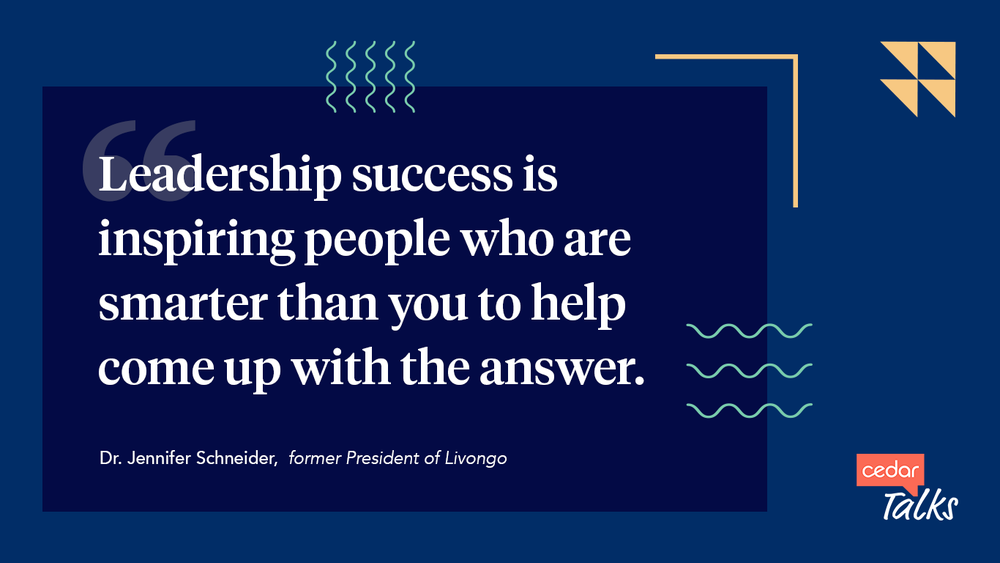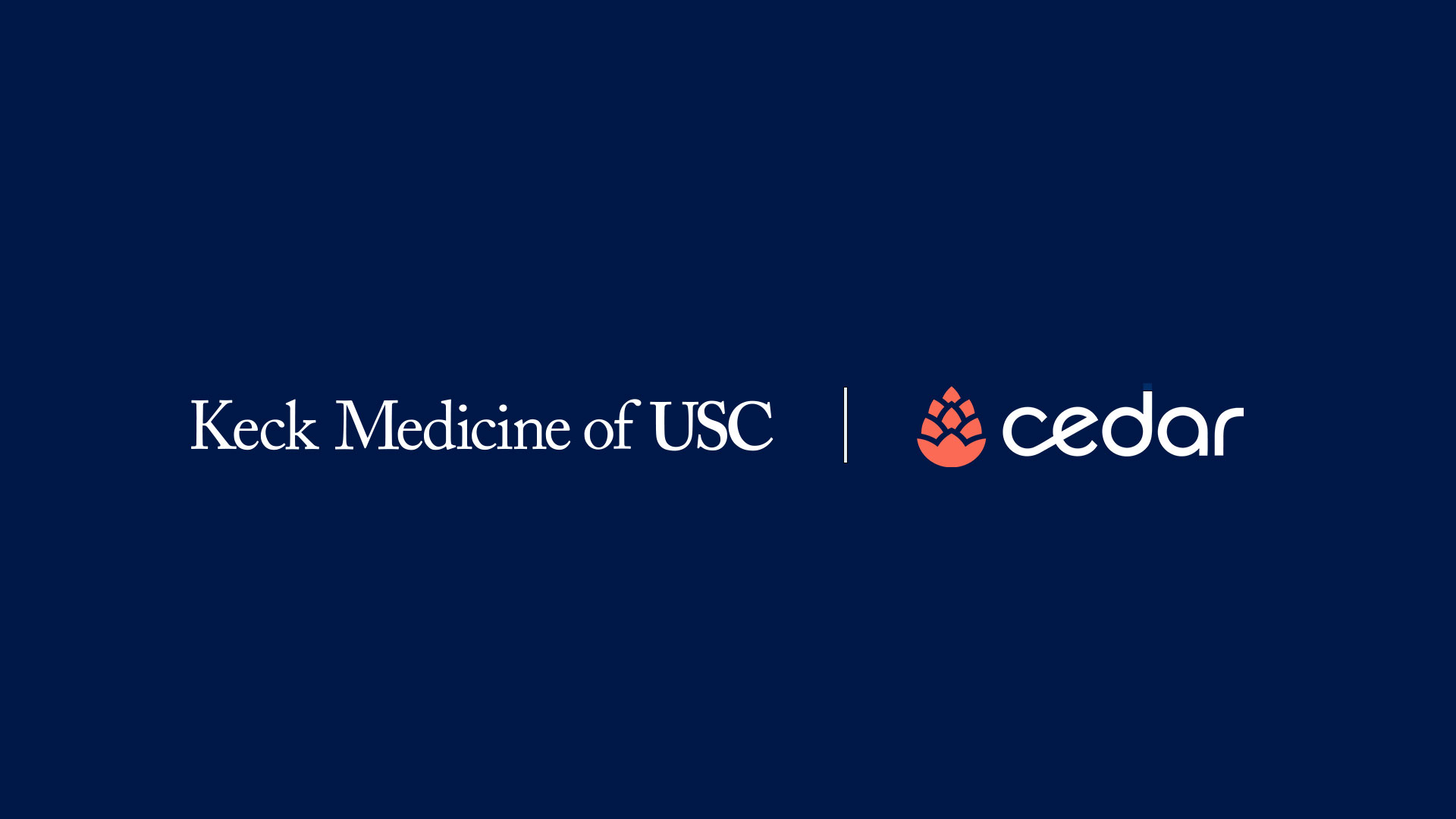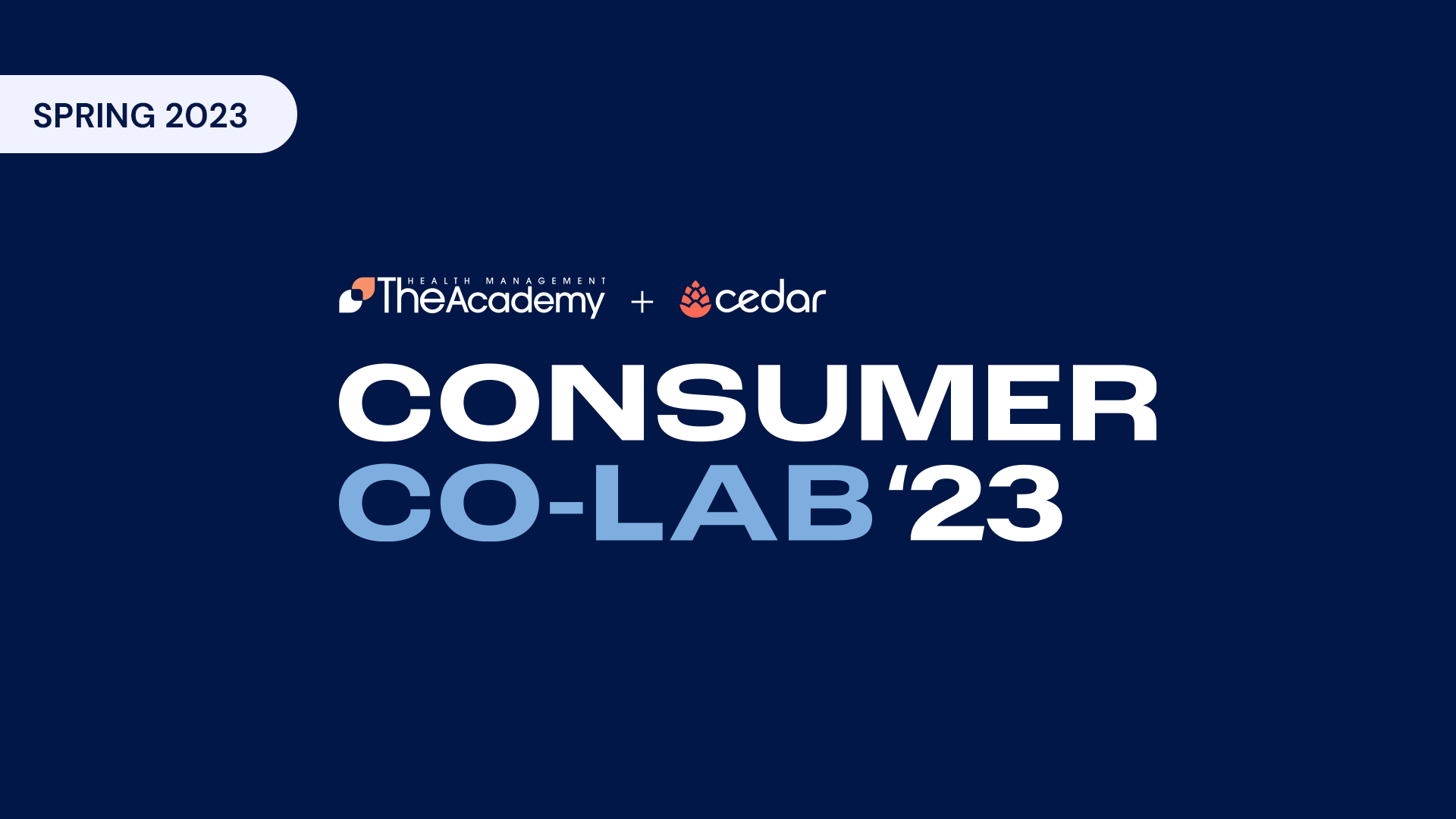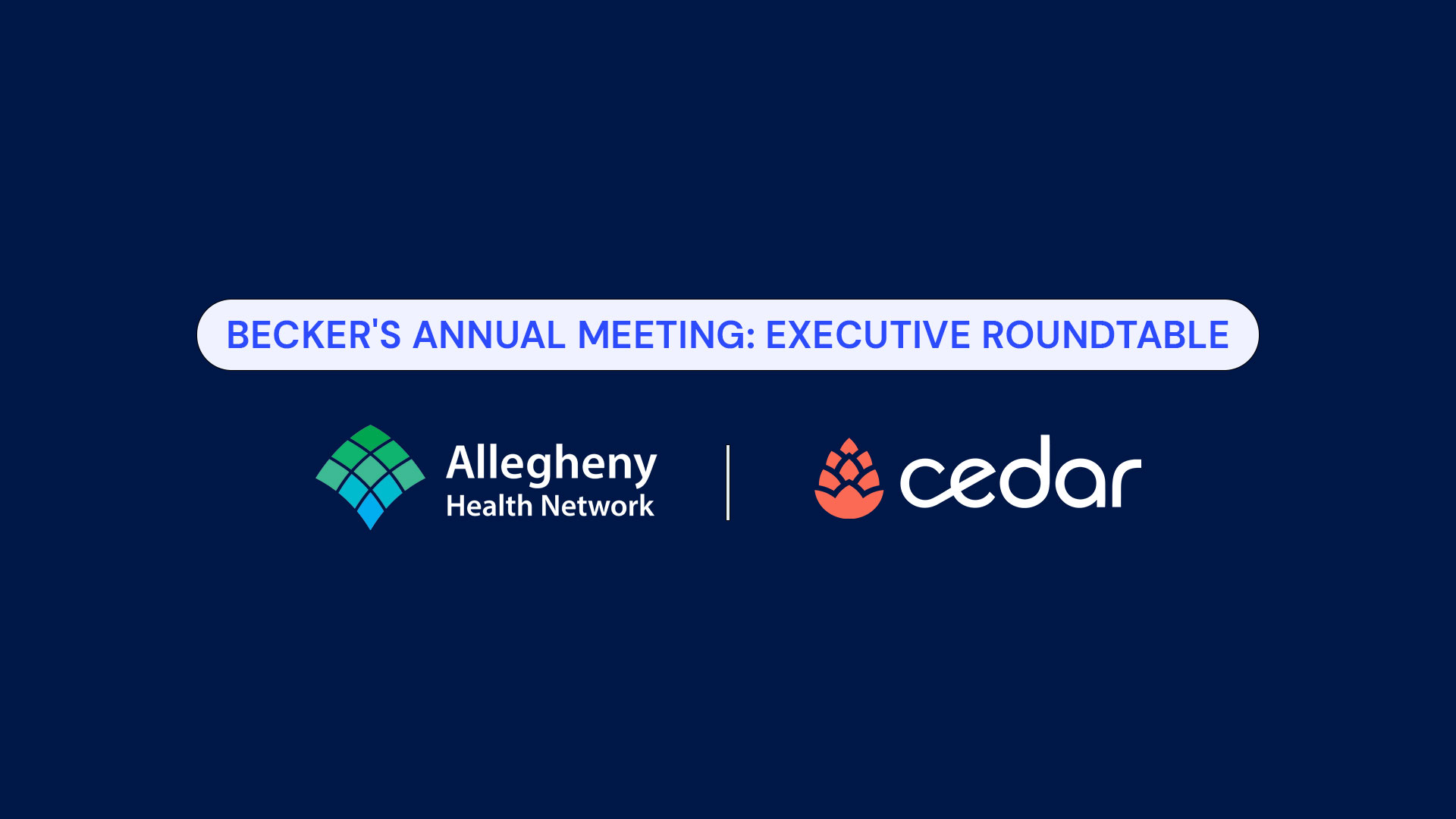Dr. Jennifer Schneider is the former chief medical officer and president at Livongo, the revolutionary digital-health company whose data science and technology-enabled platform has helped millions of people manage chronic diseases in revolutionary new ways.
During her time at the company, Dr. Schneider was instrumental in leading the largest consumer digital health initial public offering (IPO) in history and ushered through the industry’s largest merger to date with Teladoc Health, beginning a new era of consumer-centric virtual care.
In a recent Cedar Talk, she spoke about the IPO, her leadership style, patient-centricity and much more. Selected talk highlights are reproduced below. To watch the full interview, click here.
On her formative years and transition into the business side of healthcare
My background and training is as an internal medicine doctor. I grew up in the southwest corner of Minnesota. I was the first in my family to go to medical school, and frankly, went because I was diagnosed with Type 1 diabetes when I was 12, so that became this thing for me – learning about the condition and being in control of it. I then did my internal medicine training and actually had both an infectious disease fellowship and spots at the CDC and Epidemiology Intelligence Service (EIS) and I turned both of those down to go get a masters in health services research at Stanford.
I think the general guiding principle throughout my career was to follow problems more than paths. I loved the concept of data – being able to drive data at large scale to make decisions. I had no intent at all in going into technology. I wasn’t trying to go into business. But there was a really interesting question that came up: how do we create transparency in healthcare and truly start to democratize the data?
I was drawn to the problem so joined [Castlight Health] to help and learned about healthcare digital components, started and led the analytics team, served as chief medical officer [and] took the company public for over a billion dollars. And then very similarly – again, I wasn’t looking for a new role or new job—met the Livongo team and truly fell in love with the idea [behind the company] which was how can we leverage data at scale to drive behaviors the same way that other industries do?
If you look around, healthcare is in so many ways leading as an industry and in so many ways lagging. [Say you] take your kids to Disneyland or Disney World…they have hundreds of data scientists and you think you’re controlling your journey with that fast pass, but they’re marching you through there getting you to buy things based on the demographics of your family and your kids.
And I kept thinking, “Why can’t we do that with people living with chronic conditions?” So I joined Livongo and started as chief medical officer and took over as president for the last almost two and a half years.
On the challenges of switching from medicine to business
For me, it’s a little bit around your risk taking. I think when you’re a trained physician, you spend years and years in school and you get really good at tests and you kind of know what the right answer or outcome is. In business it’s not always so clear and there are like four different paths and you look at the pros and cons and the risk and the reward and you just say, “OK, I’m going to put my blinders on and go for this one.” And then you have to develop that ability to pull your head up in the midst of it and assess, “is this actually the right one?” But while you’re keeping your foot on the gas.
Medicine’s not like that. It’s incremental and you kind of know you’re rarely going to hit the wall. It’s more navigated from that standpoint. I think today physicians in general aren’t trained to be as collaborative by nature as they are hierarchical. The business world is all about collaboration and idea generation.
How her personal experiences with a chronic condition (Type 1 diabetes) impacted her role at Livongo and informed the company’s patient-centricity
I think there were a couple things that were really clear to me that were very instrumental in the business as we were building them. The first was truly understanding the condition. We used to joke with our HR leader that we had a disproportionately high spend on our own employee health because we hired and attracted a lot of people with diabetes and a lot of people with hypertension. And that’s actually a really great thing because at the end of the day you have to deeply understand what that experience is. And we were a B2B company but we were B2B2C so we focused obsessively on the “C” and making sure that the experience was one that delivered value to the end user.
Technology is only as good as the overarching experience. If you anchor on the technology, you kind of miss the whole point. We talked about this a lot at Livongo. Words really matter. I skipped the week at Hopkins when they talked about the “diabetic complications” from the non-compliant diabetic.
But I have diabetes. I’m not a diabetic. I’m a medical school trainer. I’m a friend. I’m an athlete. This is not the only thing I am. You have to create a world of empathy and understanding and choose the word.
Everybody at Livongo had been corrected. We did not use the word diabetic, we would use the phrase “person with diabetes,” because it’s a person—they just happen to have a condition. But they are a person first and foremost. So driving through those principles really allowed us to create a better experience and deliver.
Her reflections on the Livongo IPO
Going public is a branding event and a fundraising event. It allows you to play in a totally different league […] It gives other companies a vote of confidence and understanding.
The process itself, for those who may not have been through it, is exhausting and grueling and totally distracting from the core business. I felt very fortunate to be on an executive leadership team of people who were able to run and grow the business and successfully do an IPO without missing a beat. But that takes a lot of discipline and a lot of self-confidence around individual players across the ecosystem to continue doing what they’re doing.
The other thing that we did prior to going public, and I think this was really important and will become increasingly important as digital health gets flooded, is we identified and articulated a brand new category. We didn’t go public as another digital health diabetes company.
We believe and still believe that we were better not because we were better in comparison but because we were different. We were doing something different. We spent a lot of time talking about the focus on the individual person, not the healthcare ecosystem […] We really built an articulation strategy around what we were offering and bringing to the market.
On changes to patient care under conditions of COVID-19?
The biggest change for us is not surprising. It was the sheer number and impact on the behavioral health and mental health of everybody who had access. So we made COVID-specific modules and we made those free to everybody – like literally free to everybody in the United States. And we did that and those modules were things like, “What is it like to work from home?” “What is it like to be in a smaller, tighter community?” and “What are the coping strategies of trying to teach your children?”
So there’s a number of things that we’ve all had to adjust to. Some were great and some were really hard and there are coping mechanisms and dialogues around all of those. So our team got to work with the lead at the time, Dr. Julia Hoffman, [who] sent an email shortly after the shutdown in California and was like, “Hey, let’s do this.” And we were like, “Yes, absolutely.”
The utilization numbers for our behavioral health product just skyrocketed meaning there’s a clear need and that will continue to trail for an incredibly long time, is what I believe.
To hear more from Dr. Schneider on her thoughts on SPACs, women in healthcare she admires, the future of personal medical data, how she established a positive and inclusive culture at Livongo and much more, click here to watch the full interview.
Cedar Talks is a thought leadership series focused on highlighting experienced entrepreneurs, tech innovators and healthcare leaders who are solving important problems by challenging the status quo. Recent Cedar Talks have included Marc Andreessen and Scott Kupor of Andreessen Horowitz (aka a16z), former CEO and co-founder of Instagram Kevin Systrom, PatientPing founder Jay Desai.
We’ll be hosting Graham Stanton of Peloton for our next Cedar Talks on January 20, 2021. If you’d like to be notified of future Cedar Talks, click here to join the mailing list.



